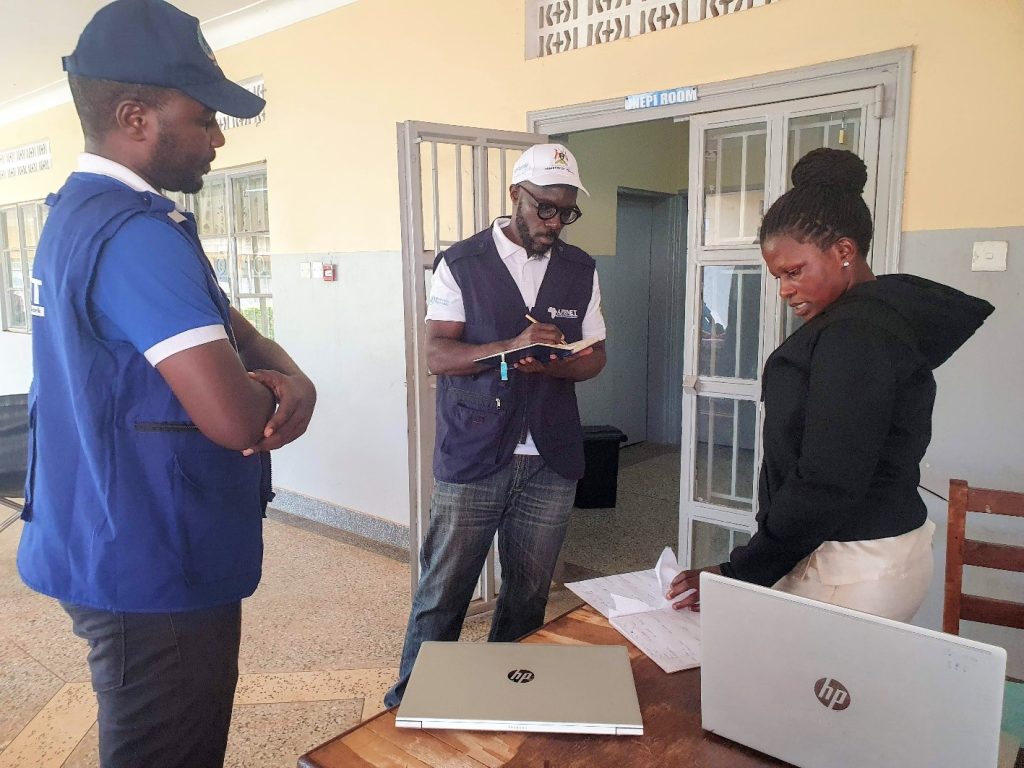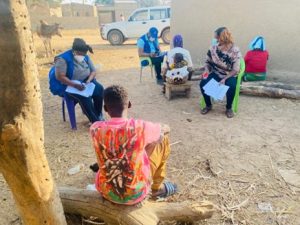Shadowing a field epidemiologist during a polio vaccination campaign in Uganda
-
by
AFENET

Uganda’s ministry of Health early this month launched the first of two planned mass polio immunization campaigns targeting 49 districts following the declaration of a polio outbreak on June 1, 2024, after the polio virus was detected in the Doko environmental sewerage system in Mbale City, in the east of the country. The campaign aims to vaccinate all children under five years old through a house-to-house vaccination strategy.
As part of partners working with the Uganda health ministry, the African Field Epidemiology Network (AFENET) through the Life course Immunization Project, with support from the US Centers for Disease Control, on October 3, 2024, deployed a team of field epidemiologists to support monitoring and support supervision of this sub-national campaign. Dr Kevin Mugenyi was part of the team deployed in the Jinja region. Over four days, Kakaire Ayub Kirunda shadowed Kevin to understand what it means to monitor and supervise a house-to-house vaccination exercise.
Meetings
Kevin’s typical day always started and ended with a meeting. Day one saw us meet the health teams at both the Jinja District and Jinja City health offices. The subsequent entry meetings happened at subcounty and community level.
According to Kevin, the morning meetings were to plan for the priority sub counties to be supervised for the day in collaboration with the district health team officials and partners. “If you do not have meetings, you get disorganized and might all end up supervising the same sub counties. The meetings help to allocate the resources well and for efficient supervision.
And the evening meetings? Kevin further explained: “These are for daily tracking of progress of the campaign including best practices, challenges, and areas for improvement the next day. It is attended by district and all sub county supervisors.”
Vaccines management
Shortages of vaccines at health facilities resulting from inadequate vaccine stock management can hinder the success of an immunization intervention. It is for this reason that Kevin paid close attention to the issue by engaging vaccines accountability managers (VAMs) in all sub counties that we went to.
“By engaging VAMs, you want to know if the vaccines are enough for each team. So, vaccine stock and availability for each of the immunization teams and also accountability for vials returned from the field was of great importance to us. We also go to an extent of counting vials used. For example, if 20 vials go out you are supposed to receive all the twenty empties back for accountability and to avoid contamination in the environment.”
Cold chain management
Through out the monitoring time, it was common to see Kevin checking on fridges at health facilities and ice packs in vaccine carriers that health workers moved with. “We were interested in monitoring the integrity of the cold chain during the campaign. Vaccines are very sensitive and supposed to be stored at a certain temperature, failure of which will make them lose their potency. They will not be of use; it will be like you are injecting someone with mere water.”
House marking
This aids in monitoring to establish the number of houses reached. It also helps in establishing whether eligible children in a particular household were vaccinated, as explained by Kevin, who paid keen attention to markings on each household that we reached.
“House marking is one of the things that are assessed by external evaluators after the campaign. It is one of the key indicators of the campaign. If the houses are poorly marked it reflects badly on the quality of the campaign. It could mean that health workers were not trained well on marking and you may not be able to get good quality information.”
Data collection
In each community visited, Kevin sampled ten households and would ask questions while entering data on his smartphone. Kevin explained that he was entering data in a World Health Organization (WHO) Open Data Kit (ODK) supervision tool to monitor the quality of the campaign on issues ranging from information sources to AFP [Acute Flaccid Paralysis] surveillance. According to WHO, reliable data is crucial for effective disease surveillance and outbreak response. The UN health agency notes that the use of ODK tools is accelerating response to alerts of potential polio cases and helping to curb the virus.



